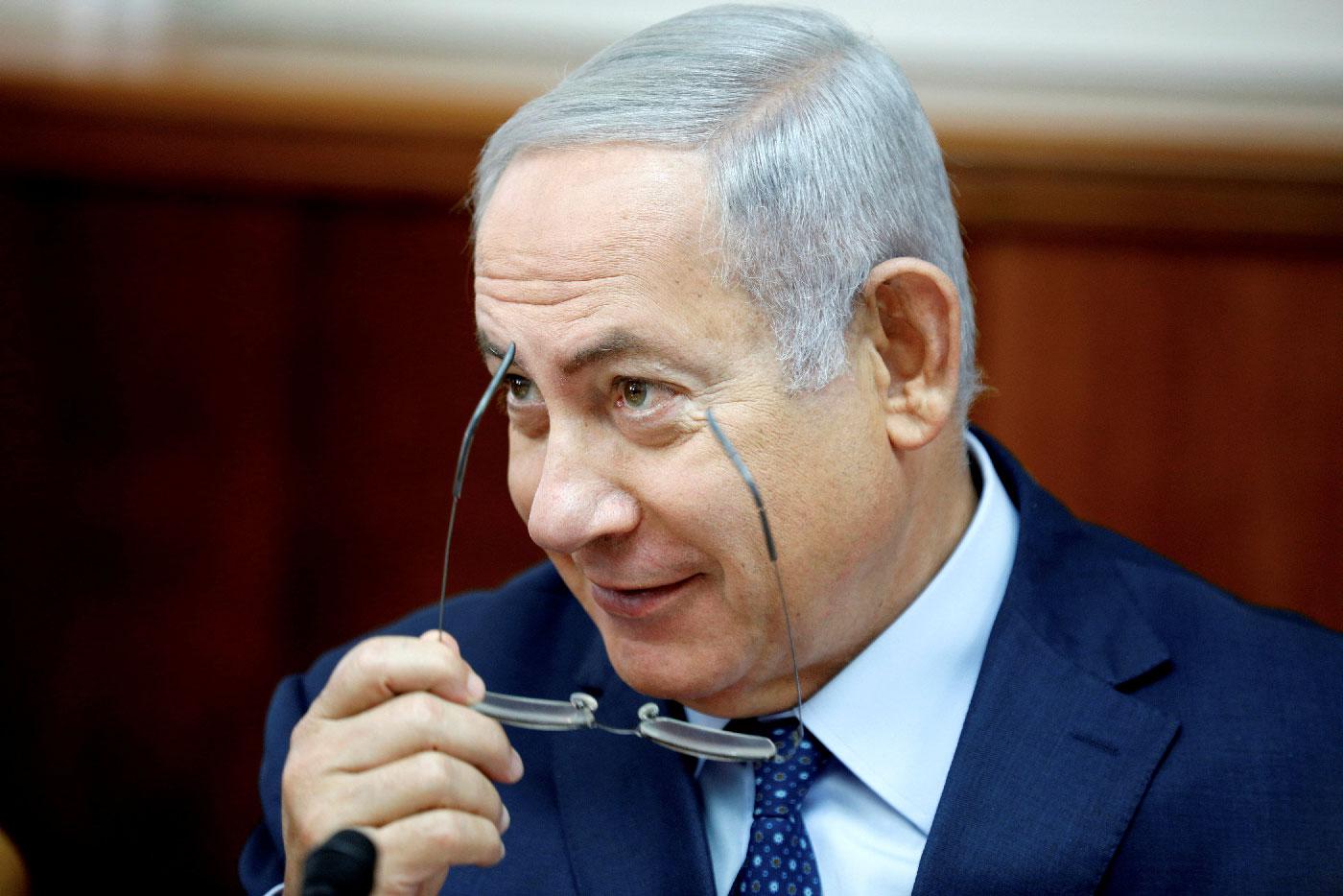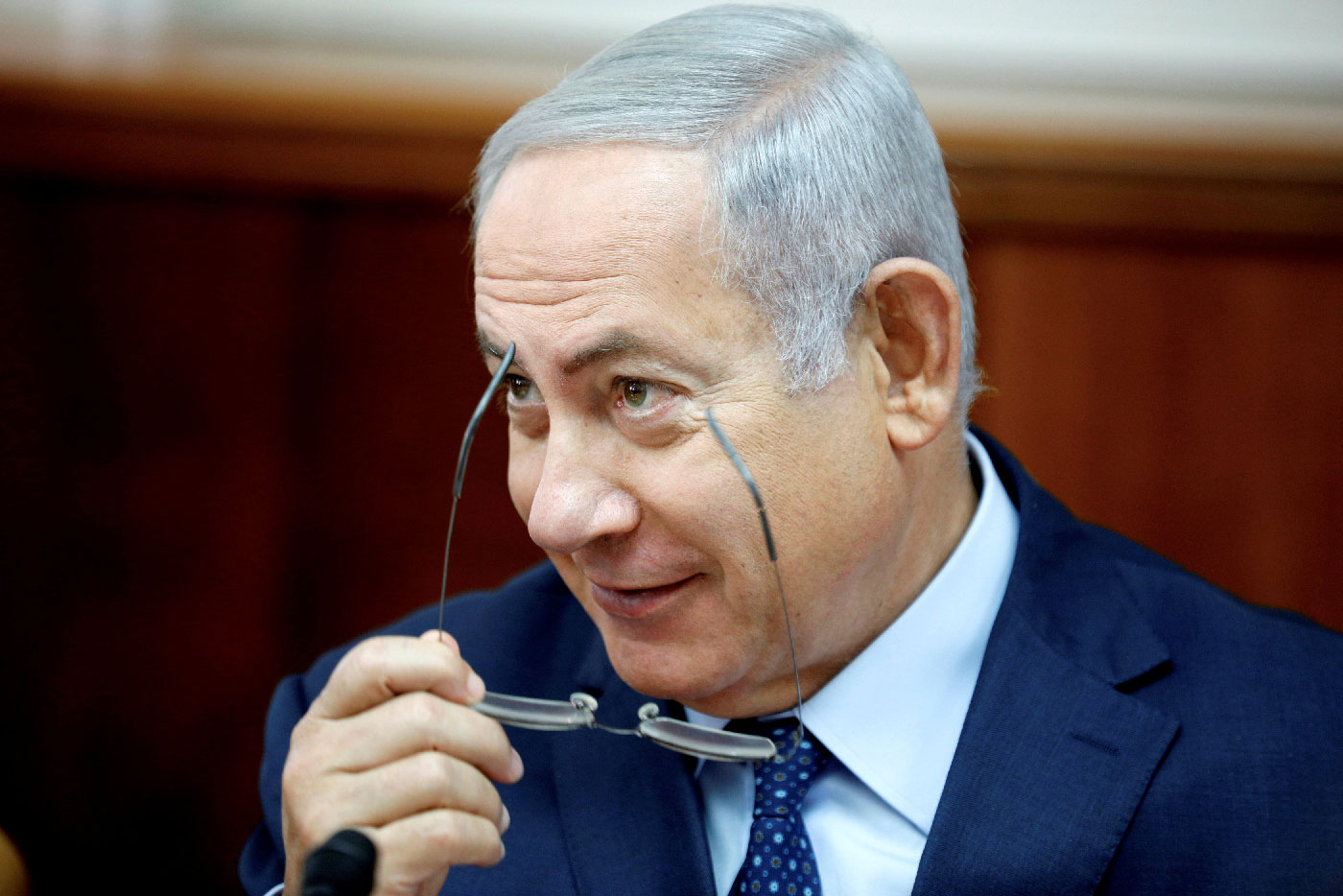Poll shows Netanyahu can hope for easy re-election in April
TEL AVIV - Israeli Prime Minister Benjamin Netanyahu will easily win a snap election set for April 9, according to an opinion poll on Tuesday, the first to be published since the ballot was announced.
Netanyahu announced the early election on Monday, appealing directly to voters for a fresh political mandate that could help him weather possible charges in corruption investigations. An election had not been due until November 2019.
The survey, published in Israel's Maariv newspaper, showed Netanyahu's Likud party winning 30 of parliament's 120 seats, the same number it took in the last election in 2015, and a governing majority for a Likud-led right-wing coalition bloc.
The closest challenger with 13 seats, the poll said, was a hypothetical party led by former Israeli army chief Benny Gantz, who has been widely touted as a potential centre-left candidate. Gantz has not publicly declared a political affiliation or any intention to run.
The established left and center parties lagged far behind Likud in the polls. The centre-left Yesh Atid party led by Yair Lapid came in third in the survey, with 12 seats compared with 11 in the current parliament.
Netanyahu is enmeshed in three graft cases and denies any wrongdoing. Israelis have been eagerly awaiting a decision by the attorney general on whether to file charges against the prime minister.
Facing the possibility of bribery and breach of trust charges, Netanyahu brushed aside questions on how his legal peril would influence the election at a Likud gathering as he announced plans for what is expected to be an April 9 vote.
The indictment decision had been expected within weeks, but some Israeli media reports said the attorney general could opt to delay the move out of concern he might influence the outcome of the election.
The Justice Ministry said on Monday, after the early election was announced, that work on the cases would continue "independent of political events".
"[Attorney general] Avichai Mandelblit has an unprecedented time bomb sitting on his desk," wrote Ben Caspit in Maariv, noting that some of Netanyahu's staunchest backers have vowed to support him even if he is convicted. "In this chaotic lunatic asylum, Avichai Mandelblit is the sole responsible adult."
Yediot Ahronot columnist Nahum Barnea said Mandelblit was in a no-win situation and likened his plight to that of former FBI Director James Comey during the 2016 American presidential election.
"If Mandelblit decides to postpone the decision until after the elections, many Israelis will ask — and justly so — for whom are they being asked to vote. Is it for a man who is facing charges of bribery or for a man who is facing lesser charges?" he wrote.
"If Mandelblit decides to release his decision in the midst of the run-up to the elections, he will be attacked by all of the candidates running on the Likud's list, first and foremost among them Netanyahu. By what right is he meddling in the elections, they will ask."
Commentary accompanying the Maariv poll said that if Netanyahu wins the election, he should be able to able to fulfill a pledge he made on Monday to form a right-wing government similar to the one he currently leads.
The poll predicted that Netanyahu, now in his fourth term, could control at least 63 parliamentary seats, two more than his coalition now holds. It surveyed 502 Israelis and had a margin of error of 4.3 percentage points.
Other recent polls have shown Netanyahu has remained popular among Israelis despite the investigations against him.
Netanyahu has focused in recent speeches on what he called his main achievements in meeting security challenges posed by Iran and Palestinian militants, building a strong economy and pursuing diplomatic outreach with Arab states in the Gulf that share Israel's concerns about Tehran.
Earlier this month, police recommended that Netanyahu be charged with bribery for promoting regulatory changes worth hundreds of millions of dollars to the country's main telecom company Bezeq. In exchange, they believe Netanyahu used his connections with Bezeq's controlling shareholder to secure positive press coverage on the company's popular news site.
Police have also recommended indicting Netanyahu on corruption charges in two other cases. One involves accepting gifts from billionaire friends, and the second revolves around alleged offers of advantageous legislation for a major newspaper in return for favorable press coverage.


